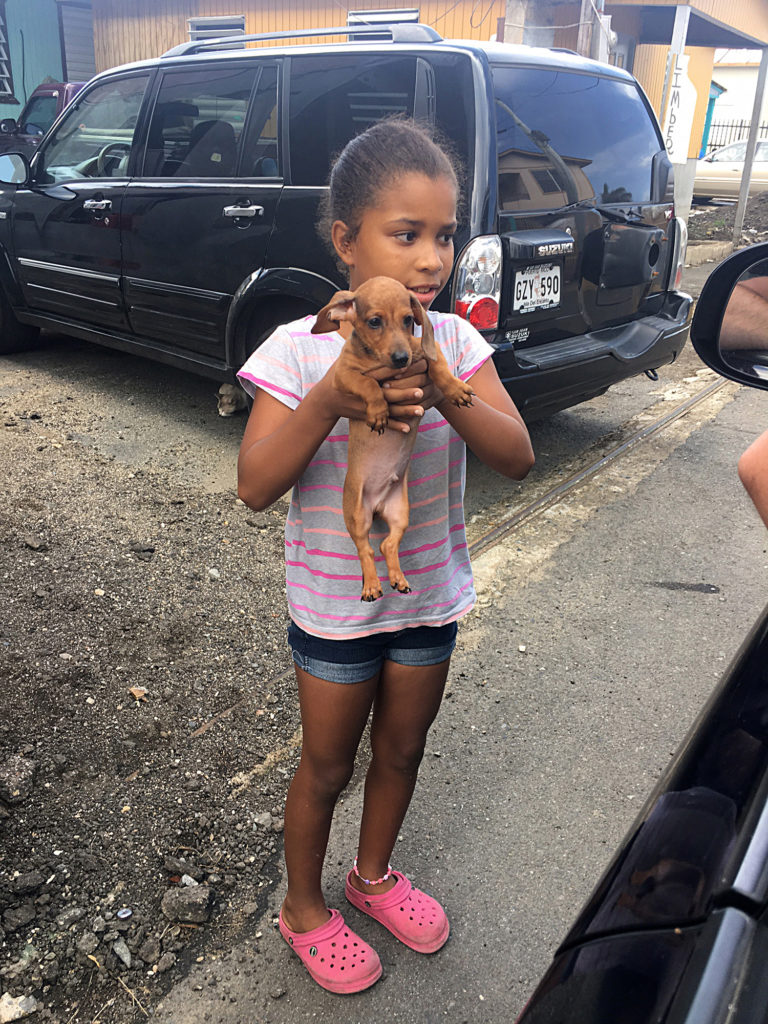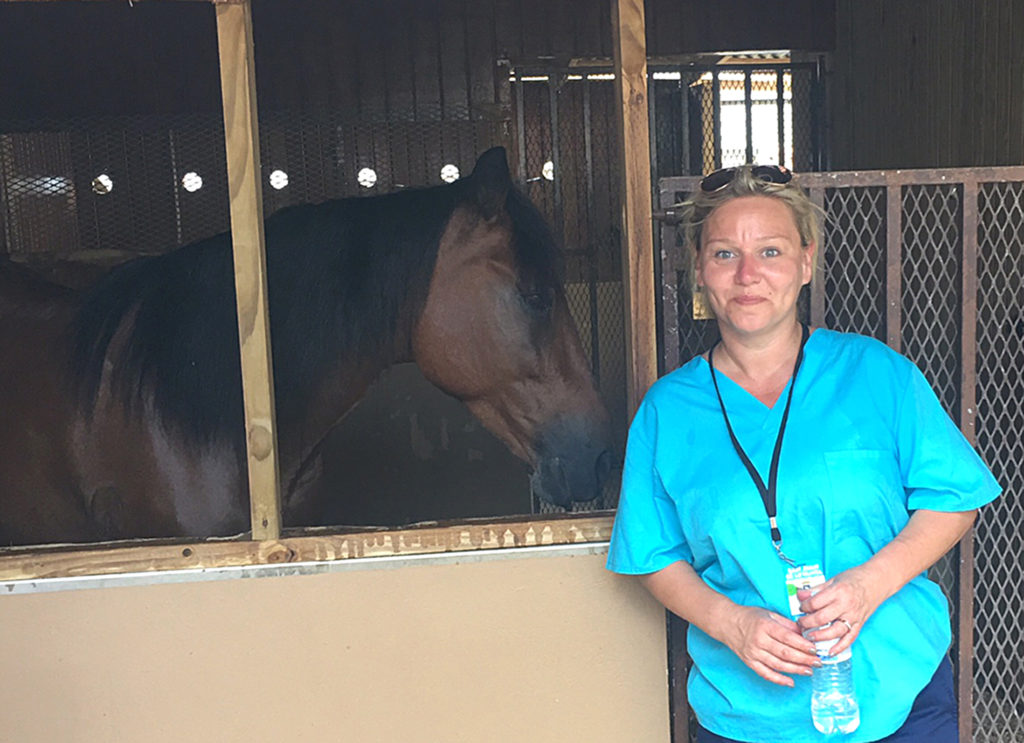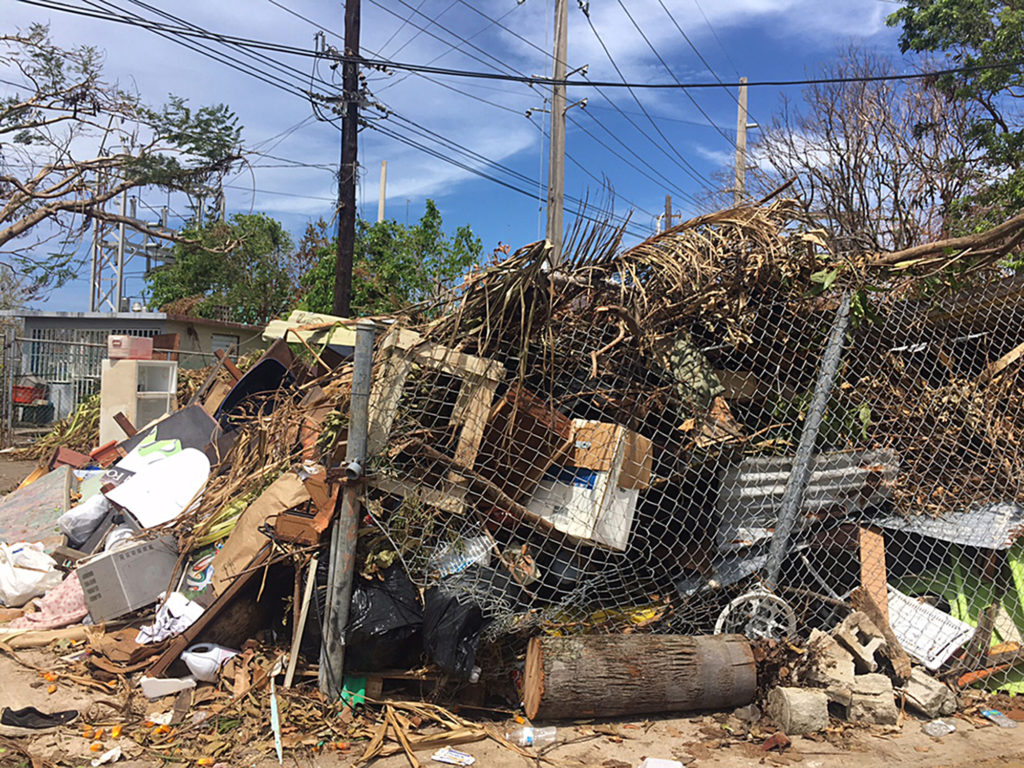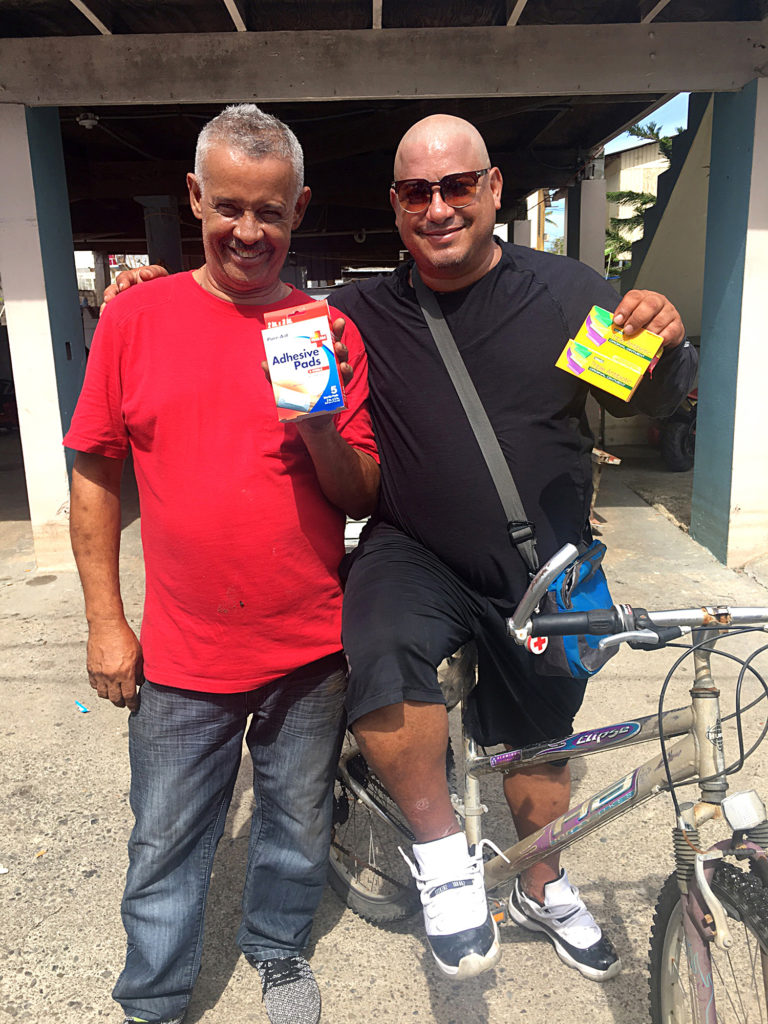After spending a week in post-hurricane Puerto Rico, going door to door looking for survivors in need of medicine, treatment and even surgery, Dawn Shourt is left with troubling images of desperate people living on the edge.
“There’s a house we went in with a husband and wife, probably in their 70’s,” she recalled. “The husband was bed-bound. The floor boards were so thin and wet we thought we were going to fall through. She had so much water still under her house that catfish this big were living under there. We said to her, ‘You have to leave.’ And she said ‘Oh no, I’m waiting for the government.’”
There was no government at work here. What Shourt did see was volunteers from all across the continental US–doctors, nurses, union workers in her group–purchasing supplies on their own, literally going door to door looking for people who needed help.
“I saw the American Red Cross giving out food and water,” she said. “I saw FDNY and the military. Didn’t see FEMA.”
Shourt, a registered nurse and Regional Director of Health Services at Chelsea Senior Living based in Fanwood, was with a group of volunteers organized by several unions. They were able to fly into San Juan and saw the first evidence of desperation among the residents as they drove out of the airport.
“There were people from the community standing there, cheering for us, crying, there to greet us,” she recalled.
Accommodations were makeshift.
“I slept in the Roberto Clemente baseball field locker room, on a cot,” she said. “Communal showers. We had running water but they shut it off towards the end because of reports it was contaminated with scabies and broken glass.”
She traveled on foot with a group of 11 other volunteers including other nurses, a doctor and members of various unions. They stayed together for safety.
“We were going into the communities every day, basically knocking on doors or talking to people who lived there to see who they thought needed a nurse or doctor or medications. There were tons of trees down, palm trees snapped in half, houses in terrible condition. The greatest need was medications. People couldn’t get them. They couldn’t get refills because they didn’t have transportation. If they were able to get to the pharmacy, they had to pay full price, cash only, as the internet was down and they couldn’t verify insurance”, she said. “Because we were in crisis mode, we were able to make on-the-spot decisions to give Benadryl or other medications. We were basically buying our own supplies.”
For patients who needed immediate hospitalization, transport took about an hour.
“We’d call someone in San Juan by satellite phone to get transport,” she recalled. “There was one man we found in bed since the hurricane who had a gangrenous foot that needed to be amputated. I saw many fragile senior citizens. There were lots of diabetic issues. People could not get insulin as the cost was $400 per bottle. One day we were approached by two guys in Contana. One had cancer on his leg and an oozing wound, he needed bandages. The other guy had PVD (peripheral vascular disease) and had a sore. We were able to give both of them wound care supplies.”
Shourt left with a heavy heart, knowing there was so much more to do in a place where local distribution of basics, even water, was simply not happening.
“I feel bad for them,” she said. “I don’t know how the island is supposed to rebuild. The military has to go in there. It’s bad.”
Shourt also took a recruitment flyer with her offering interviews for jobs as nursing and medication aides at Chelsea’s New Jersey properties. Chelsea has also advertised the same in the Star Ledger. The recruitment program has resulted in several leads.

(above) A local girl whose mother let the volunteers use her bathroom. Volunteers gave her and other children candy they sneaked out of their compound.

(above) Dawn Shourt taking a water break in Cataño.

(above) Scattered debris and building damage, typical of what is found in more remote areas of the island.

(above) Two men in Cataño referenced above, holding boxes of bandages for their wounds.





